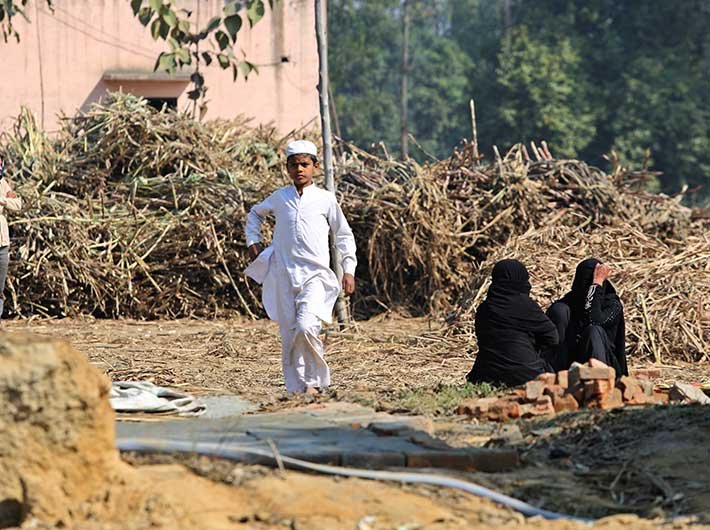There were 1.6 billion Muslims in the world as of 2010 – roughly 23 percent of the global population
Indonesia is currently the country with the world’s largest Muslim population, but Pew Research Center projects that India will have that distinction by the year 2050 (while remaining a majority-Hindu country), with more than 300 million Muslims.
The Muslim population in Europe also is growing; “we project 10% of all Europeans will be Muslims by 2050”, said the non-partisan American think tank in the article “Muslims and Islam: Key findings in the U.S. and around the world”.
Michael Lipka, a senior editor focusing on religion at Pew Research Center, wrote that Muslims are the fastest-growing religious group in the world. The growth and regional migration of Muslims, combined with the ongoing impact of the Islamic State (also known as ISIS or ISIL) and other extremist groups that commit acts of violence in the name of Islam, have brought Muslims and the Islamic faith to the forefront of the political debate in many countries. Yet many facts about Muslims are not well known in some of these places, and most Americans – who live in a country with a relatively small Muslim population – say they know little or nothing about Islam.
There were 1.6 billion Muslims in the world as of 2010 – roughly 23 percent of the global population – according to a Pew Research Center estimate. But while Islam is currently the world’s second-largest religion (after Christianity), it is the fastest-growing major religion. Indeed, if current demographic trends continue, the number of Muslims is expected to exceed the number of Christians by the end of this century.
Although many countries in the Middle East-North Africa region, where the religion originated in the seventh century, are heavily Muslim, the region is home to only about 20% of the world’s Muslims. A majority of the Muslims globally (62%) live in the Asia-Pacific region, including large populations in Indonesia, India, Pakistan, Bangladesh, Iran and Turkey.
It goes on to say that there are two major factors behind the rapid projected growth of Islam, and both involve simple demographics. For one, Muslims have more children than members of other religious groups. Around the world, each Muslim woman has an average of 3.1 children, compared with 2.3 for all other groups combined.
Muslims are also the youngest (median age of 23 years old in 2010) of all major religious groups, seven years younger than the median age of non-Muslims. As a result, a larger share of Muslims already are, or will soon be, at the point in their lives when they begin having children. This, combined with high fertility rates, will fuel Muslim population growth.
While it does not change the global population, migration is helping to increase the Muslim population in some regions, including North America and Europe.
Recent surveys show that most people in several countries with significant Muslim populations have an unfavorable view of ISIS, including virtually all respondents in Lebanon and 94% in Jordan. Relatively small shares say they see ISIS favorably. In some countries, considerable portions of the population do not offer an opinion about ISIS, including a majority (62%) of Pakistanis.
More generally, Muslims mostly say that suicide bombings and other forms of violence against civilians in the name of Islam are rarely or never justified, including 92% in Indonesia and 91% in Iraq. In the United States, a 2011 survey found that 86% of Muslims say such tactics are rarely or never justified. An additional 7% say suicide bombings are sometimes justified and 1% say they are often justified, the article said.
In a few countries, a quarter or more of Muslims say these acts of violence are at least sometimes justified, including 40% in the Palestinian territories, 39% in Afghanistan, 29% in Egypt and 26% in Bangladesh.
In many cases, people in countries with large Muslim populations are as concerned as Western nations about the threat of Islamic extremism, and have become increasingly concerned in recent years. About two-thirds of people in Nigeria (68%) and Lebanon (67%) said in 2016 that they are very concerned about Islamic extremism in their country, both up significantly since 2013.
